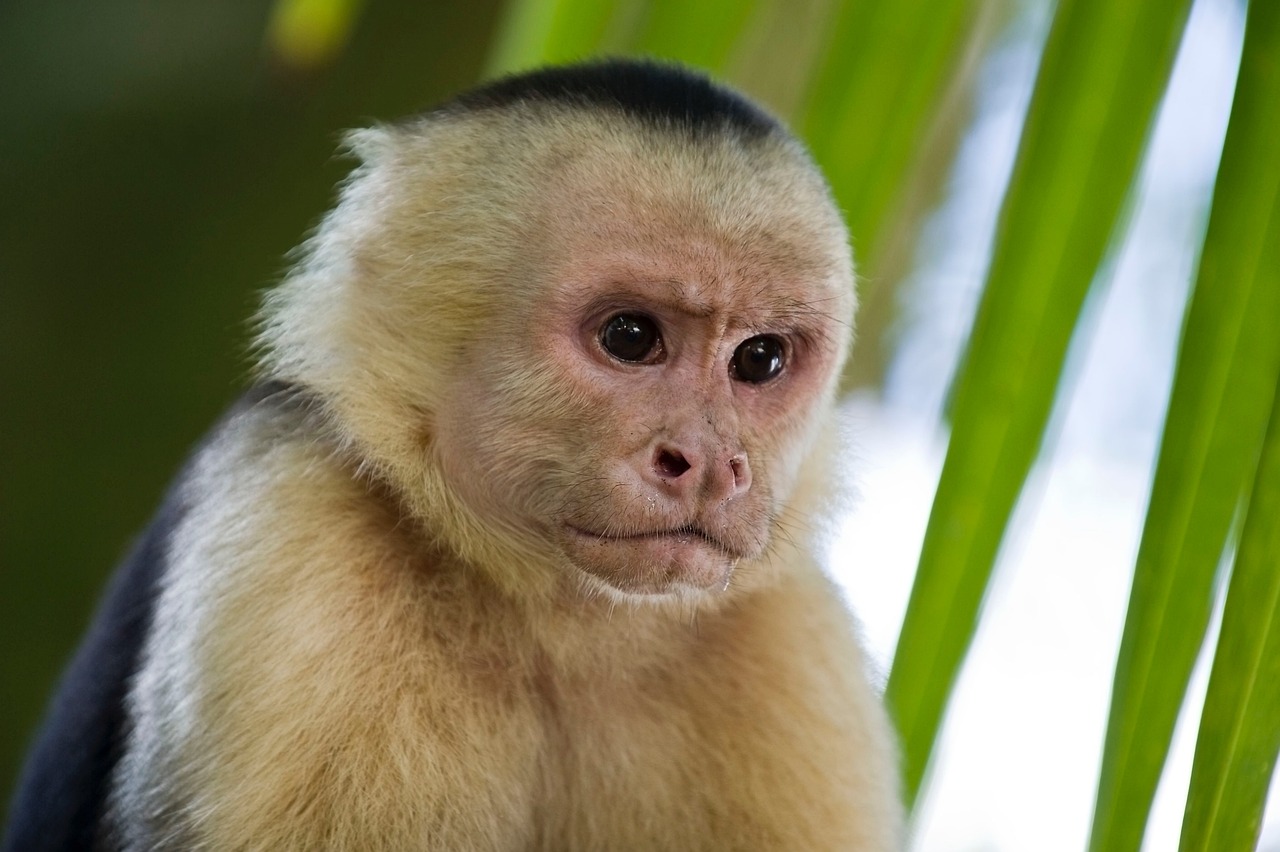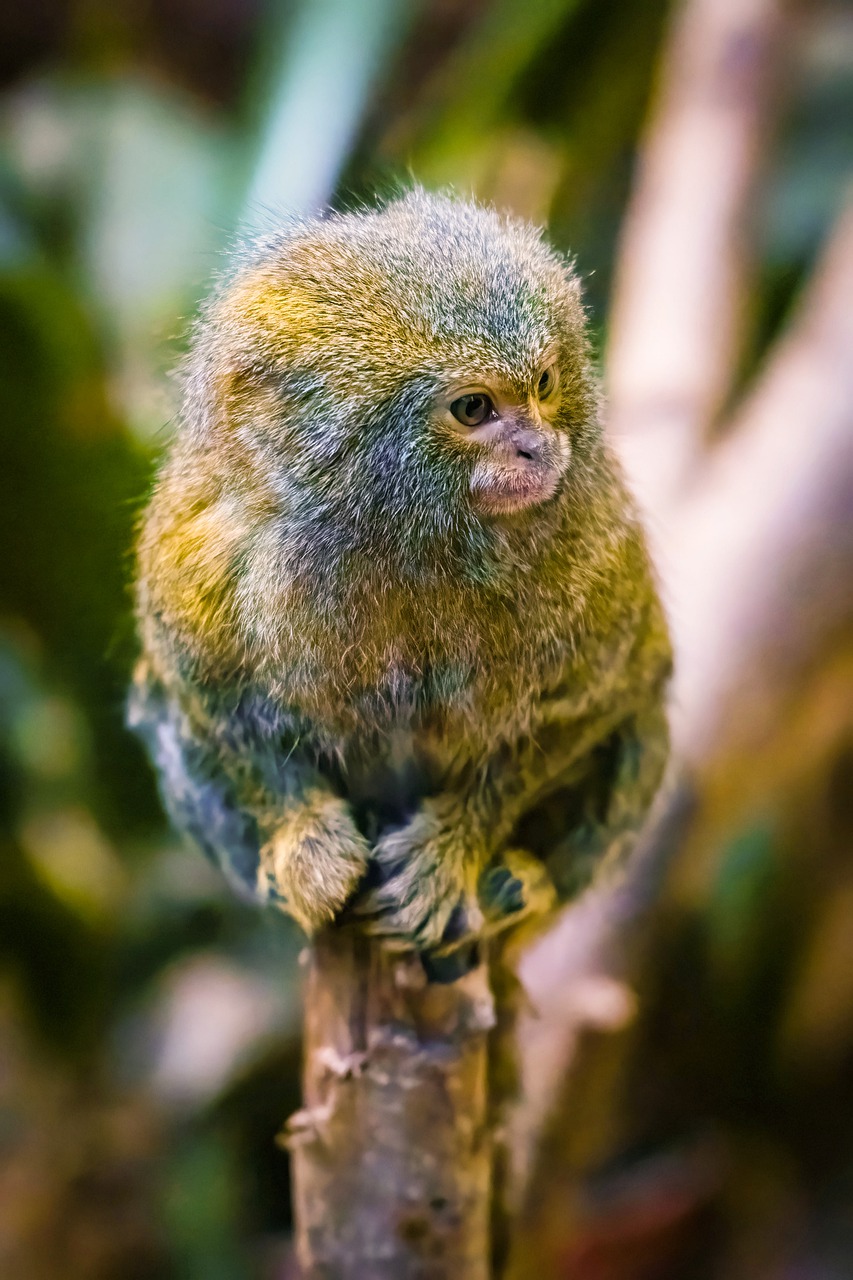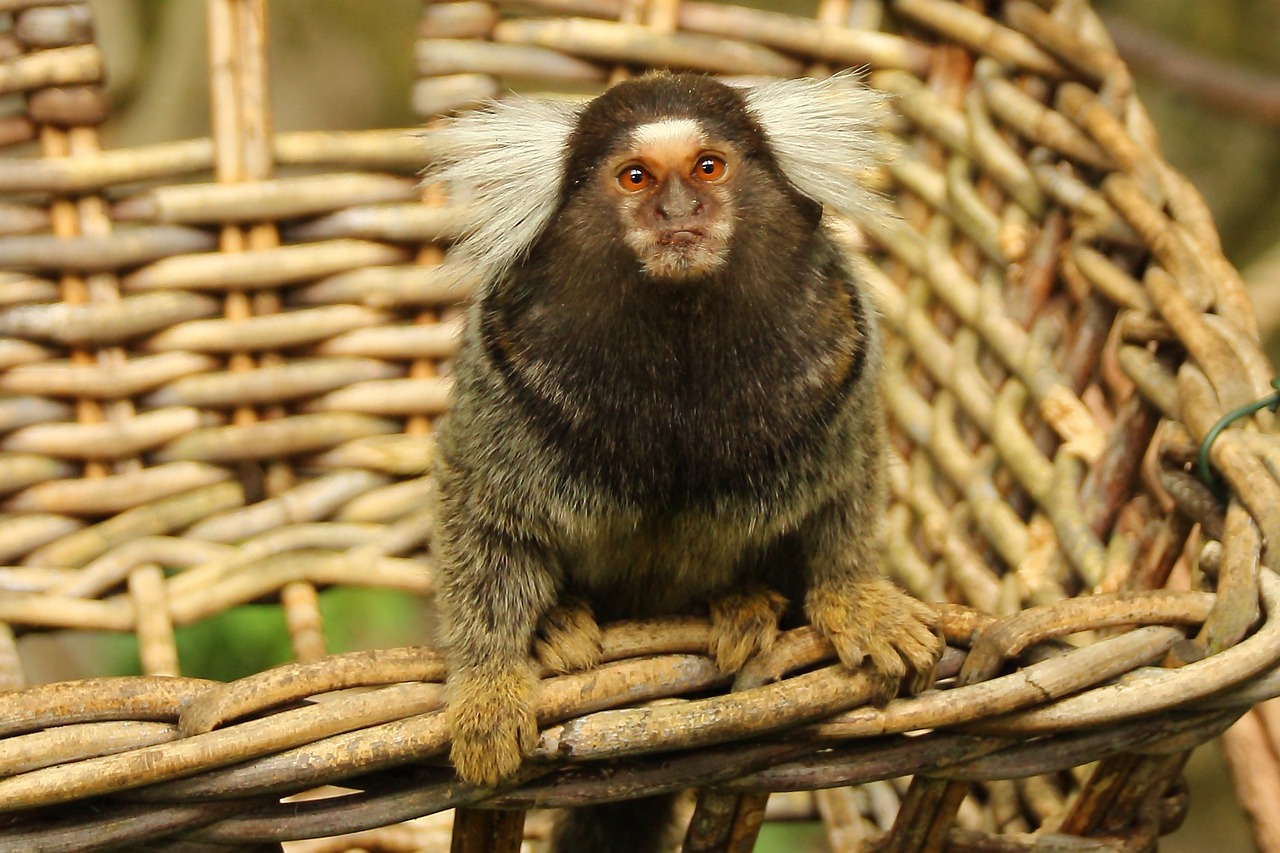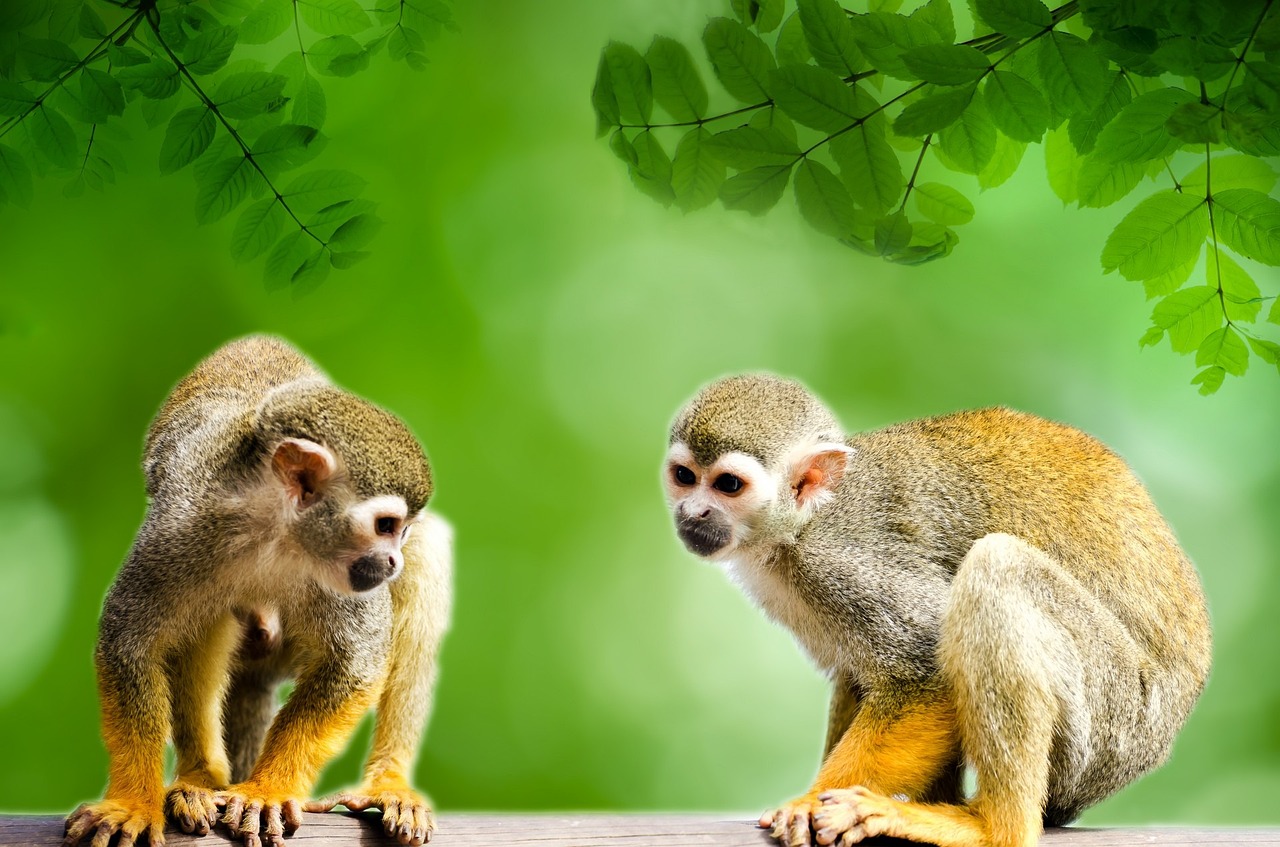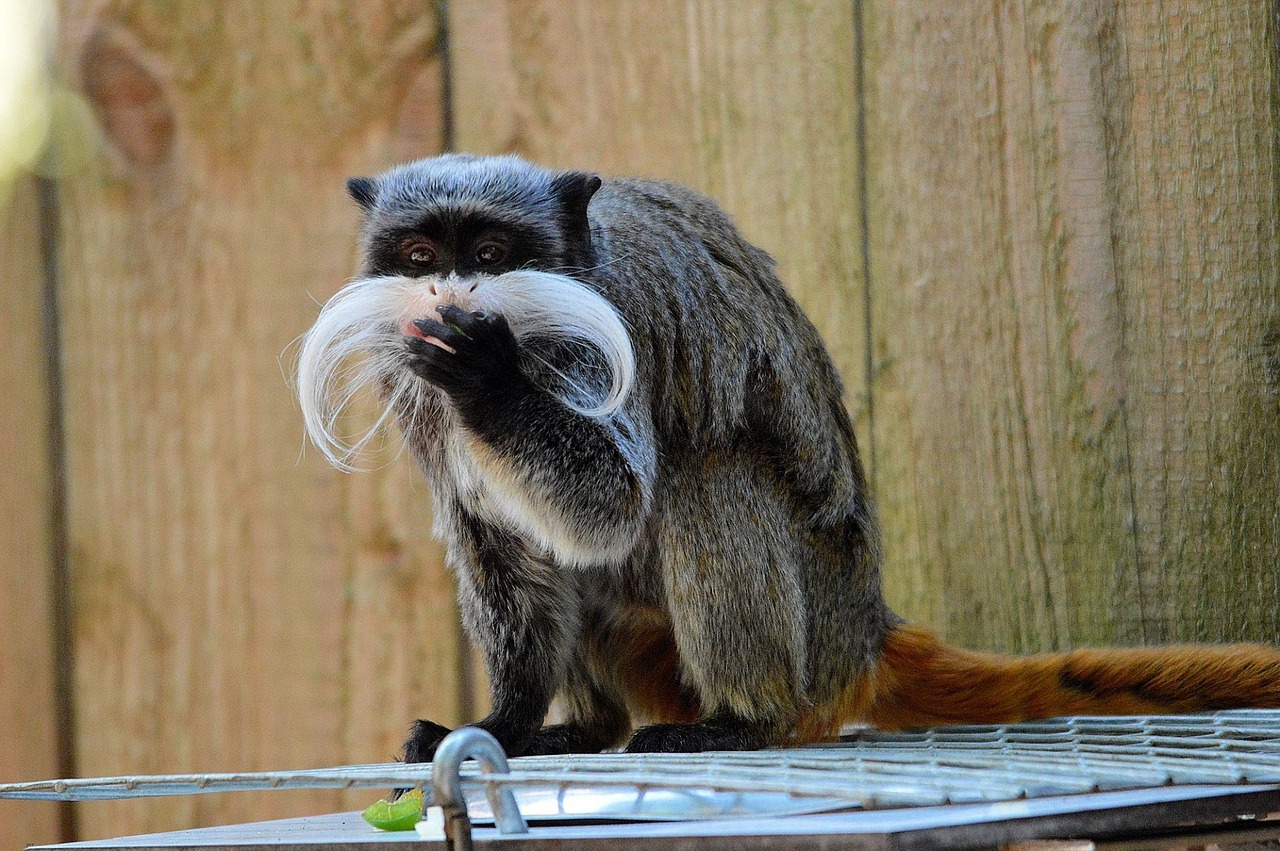As one of the few US States that have no state-wide laws on private ownership of exotic animals, North Carolina allows certain types of monkeys to be kept as pets. However, the legality of owning a pet monkey in the Tar Heel State is determined by individual municipality laws. In other words, whether or not you can own a pet monkey in North Carolina depends on where you live.
While some North Carolina municipalities permit residents to keep monkeys as pets, others have enacted strict regulations or outright bans due to concerns related to public safety, animal welfare, and the potential for the spread of diseases such as Herpes B Virus and tuberculosis. In Mecklenburg County, NC, for example, monkeys are banned from being kept as pets, according to the County's Animal Control Ordinance. So, before considering a Pygmy marmoset as a pet in North Carolina, it is important to research local laws and regulations, as well as consult with a veterinarian experienced in working with exotic animals.
Moreover, you should note that keeping a monkey as a pet is not recommended. They are wild animals that require specialized care and a specific diet. Additionally, they are highly social animals that need to live in groups. So, it is best to admire these primates from a distance and support conservation efforts to protect their wild populations.
1. Capuchin Monkey
- Price: $5,000 to $7,000
- Lifespan: Up to 40 years in human care
Capuchins are one of the monkey species legal and commonly kept as pets in the state of North Carolina. However, while keeping a Capuchin monkey as a pet may seem like an appealing idea, it's important to consider some key factors before making this decision. While these adorable primates have gained popularity as pets, there are several important aspects to be aware of.
To begin with, it is crucial to understand that Capuchin monkeys require specialized care and attention. They have complex physical and emotional needs that must be met in order for them to thrive in a domestic environment. Additionally, as mentioned earlier in the introduction, owning a primate comes with legal responsibilities and regulations that vary depending on where in North Carolina you reside.
One of the most significant considerations is the long-term commitment required when keeping a Capuchin monkey. These intelligent creatures can live up to 40 years or more, meaning you will need to provide for their care throughout their entire lifespan. This includes providing suitable living space, proper nutrition, regular veterinary check-ups, and mental stimulation.
It's also essential to be aware of the potential challenges that come with owning a Capuchin monkey. These primates are highly social animals and require extensive interaction and enrichment activities to prevent boredom and ensure their well-being. They can also exhibit aggressive behaviors if not properly trained or if their needs are not adequately met.
Furthermore, it is crucial to thoroughly research reputable breeders or rescue organizations if you decide to pursue owning a Capuchin monkey as a pet in North Carolina. It is advisable never to purchase primates from illegal wildlife traders or individuals who do not prioritize the welfare of these animals.
Overall, before bringing a Capuchin monkey into your home as a pet, it is essential to consider all aspects involved in providing them with the necessary care and attention they require. Capuchins and marmosets are more popular as pets in North Carolina than other species.
2. Pygmy marmoset monkey
- Price: Between $1,500 and $4,000
- Lifespan: Up to 20 years in human care
Pygmy marmosets, also referred to as finger monkeys, are the smallest monkeys in the world, typically weighing just over 100 grams. They are native to the rainforests of South America, where they live in family groups of up to 9 individuals. Pygmy marmosets are very social and communicate with each other through a range of vocalizations and body language. They are also known for their impressive leaping abilities, which allow them to navigate their forest homes with ease. Despite their small size, pygmy marmosets are intelligent and resourceful creatures and have adapted well to life in the rainforest.
Owning a Pygmy marmoset monkey as a pet can be challenging and is not recommended for everyone. Pet Pygmy marmoset monkeys have specific requirements that need to be met in order to ensure their health and happiness. These tiny primates require a specialized diet that includes fruits, insects, and nectar. They also need a spacious and stimulating environment with plenty of climbing opportunities, as they are arboreal animals. Additionally, they require daily social interaction with their own species or with humans, as they are highly social animals.
3. Common marmoset monkey
- Price: $1,500 to $4,000
- Lifespan: Up to 16 years in human care
The common marmoset monkey, also known as Callithrix jacchus, is a small New World monkey species native to Brazil. They are notable for their specialized claw-like nails, which allow them to cling and climb trees with ease. Common marmosets are highly social animals and live in family groups of up to 12 individuals. They communicate with a variety of vocalizations, and are known for their unique, high-pitched calls.
These white-tufted monkeys are omnivorous, feeding on a variety of fruits, insects, and small animals. Common marmosets have been studied extensively for their unique reproductive strategies, including cooperative breeding and twin births. They are popular pets in North Carolina, but it is important to note that they require specialized care and may not be suitable for all households.
As pets, Common marmosets, require a large amount of space with plenty of toys, perches, and hiding spots, as well as a heat source to maintain a consistent temperature. Social interaction is crucial for their mental and emotional well-being, so they should be given plenty of attention and playtime with their human caretakers or other marmosets. It's important to note that keeping a marmoset monkey as a pet is a serious commitment and requires extensive research and preparation.
4. Squirrel monkey
- Price: $2,000 to $9,000
- Lifespan: Up to 20 years in human care
Squirrel monkeys are small primates that are found in Central and South America. They are known for their agile movements and social nature, often living in groups of up to 500 individuals. Their diet consists mostly of fruit, insects, and small animals. Squirrel monkeys have a distinctive appearance, with their short, brown fur and white face and throat. They are popular animals in zoos and research facilities across the United States due to their intelligence and adaptability.
Squirrel monkeys are not suitable pets for most people. Like all primates, they require specialized care and living conditions that are difficult to replicate in a home environment. In addition, they can be expensive to acquire and maintain. If you are still interested in keeping a squirrel monkey as a pet, it is important to do your research and work with a reputable breeder. You will need to provide a large and secure enclosure, a specialized diet, and plenty of enrichment and socialization opportunities.
5. Tamarin monkey
- Price: $1,500 to $2,500
- Lifespan: Up to 24 years in human care
Tamarin monkeys are small primates that are native to Central and South America. They belong to the family Callitrichidae, which includes marmosets as well. Tamarins are known for their small size, with most species weighing less than a pound and measuring around a foot in length, with a tail of about 12 to 15 inches. They have distinctive fur, often with a mix of colors, and long claws that help them climb trees. Tamarins are social animals and live in groups of up to 40 individuals in the wild. They are also very vocal, using a variety of calls to communicate with each other. Tamarins primarily eat insects but also consume fruit and nectar.
As pets, Tamarins require a specialized diet and a large enclosure with plenty of climbing opportunities. Tamarins also need the company of their own species and may become aggressive or depressed without it. Furthermore, Tamarin monkeys are also known for their high-pitched calls, which can be disruptive and annoying to neighbors.


